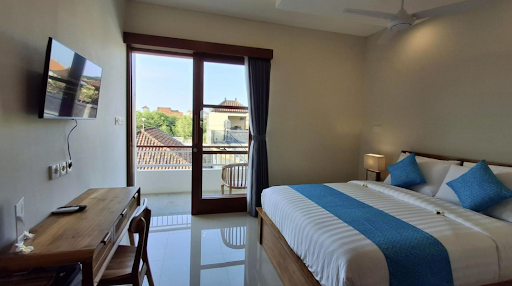Tzaneen doesn’t perform for visitors. It breathes. It stretches out quietly in Limpopo’s green valleys, where the air holds a kind of patience most cities have forgotten. The first time you find yourself in a guesthouse in Tzaneen, you might not even realize what feels different—it’s not silence exactly, but the layers within it. The shuffle of leaves, a faraway dog, a rooster declaring dawn too early. The kind of stillness that feels alive, as if the land itself is thinking.
You learn quickly that this town isn’t designed for hurry. The mist rolls in when it pleases. The people move when they’re ready. The sun doesn’t just rise—it seeps. And suddenly, you start matching its rhythm without meaning to. That’s when the town begins to show itself, bit by bit. It’s not here to be “explored.” It’s here to be noticed.
Guesthouses That Reflect the Land’s Honesty
These guesthouses—how do you describe them without flattening what makes them real? They aren’t polished spaces pretending to be rustic. They are rustic. Walls breathe history. Paint chips not from neglect, but from age. The verandas don’t frame a view—they are the view. There’s no symmetry, no perfection. Just a rightness that happens when things are left alone to belong.
The owners—most have lived here their whole lives. You’ll meet one who still rises before dawn to collect lemons from his yard, not because he has to, but because habit tastes better than routine. Breakfast? Sometimes fruit from the tree behind the kitchen, sometimes bread from the neighbour’s oven. No menu, no rush. Just what the morning feels like, offering.
Many of these guesthouses weren’t planned businesses at all. Homes that grew sideways over the years, rooms added for visitors who stayed too long and never quite left. Each corner, a conversation. Each wall, a witness. And the longer you stay, the more the house feels like it’s observing you back.
Tzaneen’s Geography of Emotion
The land here behaves differently. You drive into the Magoebaskloof Pass and think, “Ah, a forest,” until the mist folds in and you’re swallowed whole. The Debengeni Waterfalls? They don’t roar for attention. They whisper—a slow, steady rhythm that makes you sit, not stand. You find a rock, stay there, and the day rearranges itself around you.
A guesthouse in Tzaneen doesn’t need to sell its location. The land does the talking. It’s in the way light scatters through avocado leaves, in the dust that rises off the road after a truck passes, and in the pause before afternoon thunder. The kind of beauty you can’t photograph because it refuses to hold still.
Locals don’t romanticise it either. They just live it. They know which dirt roads turn to mud after the rain and which wildflowers open only when the sky goes white. You start noticing these small things—the rhythm of life that doesn’t demand your attention but earns it anyway.
Where Time and People Intersect Differently
Here, transactions don’t feel transactional. They feel like stories mid-conversation. A woman brings guavas to sell and leaves with a loaf of bread and laughter. The guesthouse owner lends her kitchen to a cousin who’s catering a wedding, and you, somehow, end up helping to chop vegetables before dinner. Things blur—guest, host, stranger—all of it dissolves into something shared.
And you realise this isn’t hospitality in the hotel sense. It’s cohabitation. You don’t consume the experience; you participate in it. The older man who fixes your leaking tap tells you about the flood of 2014. The woman who cleans the room leaves a papaya on your bed, just because it’s ripe. This isn’t service—it’s continuity. By the third day, you start walking more slowly. You stop checking your phone so often. You begin to listen to silences as if they’re speaking.
The Texture of Sustainability
Sustainability here isn’t something they print on brochures. It’s older than that. A way of life handed down by practicality. Solar panels, yes, but they came after candles. Water tanks, but only because boreholes run deep. Compost isn’t a trend—it’s a necessity, turned ordinary.
Laundry flaps on lines, bees hum over open gardens, and the smell of smoke from wood stoves lingers in the evening. What looks like simplicity from the outside is actually precision—an entire ecosystem of care. Everything is used, reused, and remembered. Locals don’t preach it. They live it. Because in a place like this, waste isn’t just wrong—it’s illogical. The land provides only as much as you respect it.
And somehow that same quiet respect runs between people, too. A guesthouse owner covering school fees for her gardener’s daughter doesn’t make for an Instagram story. It’s not a gesture. It’s a responsibility carried without noise.
Leaving Without Fully Leaving
Departures here don’t happen cleanly. You start the car, and something tugs at you—not nostalgia, not sentiment. More like recognition. You’ve felt this rhythm before, somewhere deep inside yourself, before the noise of everything else buried it.
You drive out past the banana groves, dust curling in the mirror, and realise Tzaneen hasn’t given you an escape—it’s reminded you. That comfort doesn’t live in luxury. It lives in rhythm, in small kindnesses, in space to listen again.
A guesthouse in Tzaneen doesn’t sell peace; it lends it. And when you return to your world of screens and schedules, you’ll find traces of this place still on you—the patience of a mountain, the echo of quiet work done without announcement. That’s the secret of Tzaneen. It doesn’t ask you to remember it. It just waits, quietly certain that someday, you’ll return.


